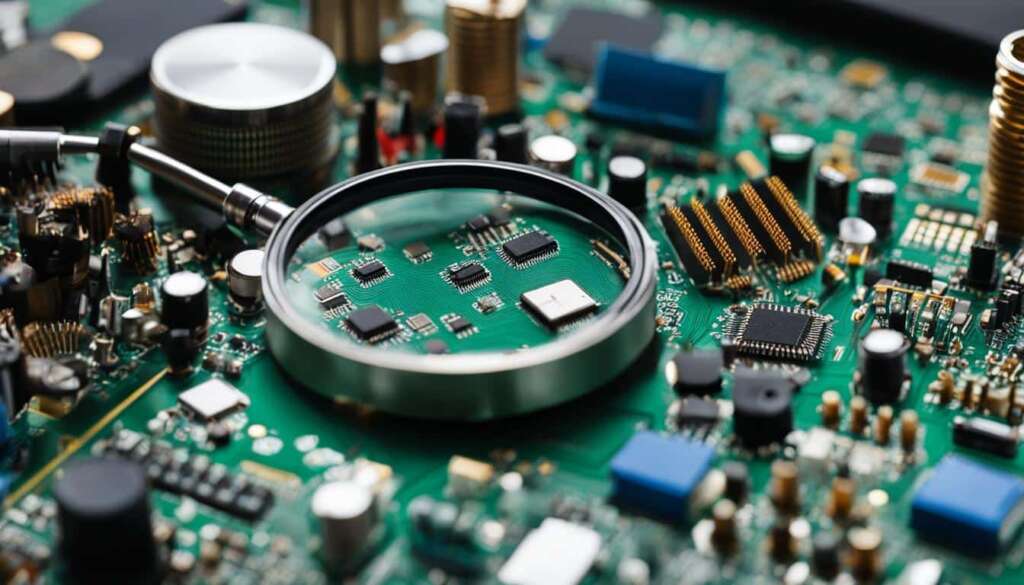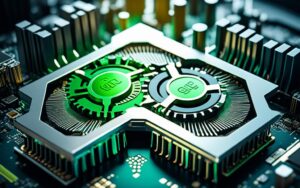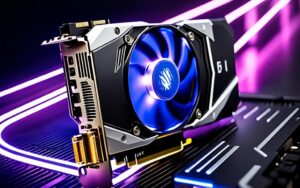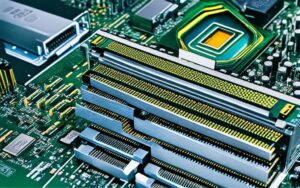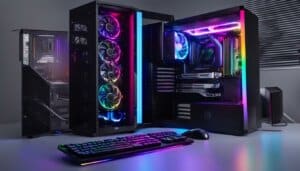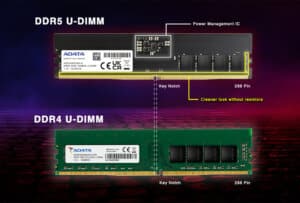Table of Contents
Determining the value of your PC can be a complex process that involves assessing its hardware specifications, market demand, and overall condition. Factors such as the age, brand, and specifications of components like the CPU, GPU, RAM, and storage play a crucial role in determining the worth of your PC. Additionally, current market trends and the condition of your PC also influence its value. It is important to consider these factors when trying to answer the question, “How much is my PC worth?
Assessing the hardware specifications of your PC is the first step in determining its value. This includes components like the CPU, GPU, RAM, and storage. Newer and higher-spec components generally fetch a higher price. Checking your PC’s system settings or using third-party applications like CPU-Z or HWiNFO can provide detailed information about your PC’s hardware specifications.
Taking market trends and demand into account is also crucial when valuing your PC. If there is a high demand for gaming PCs and your computer has a powerful graphics card, you may be able to sell it for a premium. On the other hand, if the market is flooded with similar models, you may need to lower your price to stay competitive. Understanding market trends and demand can help you determine the realistic value of your PC.
The physical condition of your PC significantly affects its value. A well-maintained and clean computer with no visible damage or wear will attract higher offers. Additionally, including peripherals like a monitor, keyboard, and mouse can sometimes increase the overall value. When setting a price for your PC, it is important to consider how much you originally paid and how the PC’s value has depreciated over time. Starting at about half the original price and adjusting based on factors like hardware specifications, market demand, and condition is a common pricing strategy. Researching similar models on online marketplaces can also give you an idea of what price to set. It is important to be honest about any flaws or issues with the PC and be prepared for negotiation with potential buyers.
Assessing Hardware Specifications
When determining the value of your PC, it is essential to assess its hardware specifications. The components that make up your PC, such as the CPU, GPU, RAM, and storage, play a significant role in determining its overall worth. The age, brand, and specifications of these components directly impact how much your PC is valued at. Generally, computers with newer and higher-spec components command a higher price in the market.
To accurately assess your PC’s hardware specifications, you can check its system settings or utilize third-party applications designed for this purpose. Applications like CPU-Z or HWiNFO provide detailed information about your PC’s CPU, GPU, RAM, and storage, which can help you understand the value of your PC.
Technical specifications of your PC:
| Component | Brand | Specifications |
|---|---|---|
| CPU | Intel | i7-10700K 3.8GHz |
| GPU | NVIDIA | GeForce RTX 3080 |
| RAM | Corsair | 16GB DDR4 |
| Storage | Samsung | 1TB SSD |
By understanding the hardware specifications of your PC, you gain insight into its value and can better assess its worth in the market. This information will be valuable as you proceed with pricing and selling your PC.
Taking Market Trends and Demand into Account
The value of your PC is heavily influenced by current market trends and demand. Understanding these factors can help you accurately determine the realistic value of your PC.
If there is a high demand for gaming PCs, especially those equipped with a powerful graphics card, you may be able to sell your computer for a premium price. Gaming PCs have become increasingly popular as more people are embracing the world of online gaming. This surge in demand is driving up the prices of gaming PCs, particularly those with high-performance graphics cards.
On the other hand, if the market is saturated with similar models of gaming PCs, you may find it necessary to lower your asking price in order to stay competitive. Supply and demand dynamics play a significant role in determining the value of any product, including gaming PCs. An oversupply of similar models can lead to a decline in prices as sellers compete for buyers’ attention.
It’s important to keep a pulse on the market trends and fluctuations in PC demand. Researching popular gaming PC brands and models, staying updated on the latest releases and advancements in hardware technology, and monitoring online marketplaces can provide valuable insights into the prevailing market conditions.
Market Trends and PC Value
Keeping an eye on market trends can give you an idea of how much your PC is worth and whether now is the right time to sell. Here are some key market trends to pay attention to:
- The popularity of eSports and professional gaming competitions has significantly increased the demand for high-performance gaming PCs. This trend has driven up prices for PCs that cater to this specific market.
- Advancements in graphics card technology, such as the release of new GPU models, can impact the value of gaming PCs. Buyers are often willing to pay a premium for PCs equipped with the latest and most powerful graphics cards.
- Market trends can also be influenced by external factors such as the release of highly anticipated games or the emergence of new gaming trends. These events can create a surge in demand for gaming PCs, affecting their value in the market.
By staying informed about market trends and demand, you can make more informed decisions about selling your PC. Whether you’re looking to capitalize on a high-demand market or willing to adjust your price to attract buyers in a competitive market, understanding the market dynamics will help you set a fair and realistic price for your PC.
The Impact of Graphics Cards on PC Value
One of the key components that greatly influences the value of a gaming PC is the graphics card. Graphics cards are critical for delivering smooth graphics and enabling high-quality gaming experiences. The more powerful and advanced the graphics card, the higher the demand for the PC.
Gaming enthusiasts are often on the lookout for PCs with top-of-the-line graphics cards, as these cards provide better performance and enhanced visual effects. NVIDIA and AMD are two popular manufacturers known for producing high-performance graphics cards, such as the NVIDIA GeForce RTX series and the AMD Radeon RX series.
| Graphics Card | Brand | Model | Estimated Value |
|---|---|---|---|
| NVIDIA GeForce RTX 3090 | NVIDIA | RTX 3090 | £2,000 |
| NVIDIA GeForce RTX 3080 | NVIDIA | RTX 3080 | £1,500 |
| AMD Radeon RX 6900 XT | AMD | RX 6900 XT | £1,800 |
As you can see from the estimated values above, PCs equipped with high-end graphics cards can command a significant price premium. However, it’s essential to note that the graphics card alone doesn’t determine the value of a PC. Other factors, such as the overall hardware specifications, condition, and demand in the market, also play vital roles in determining the PC’s value.
In conclusion, keeping an eye on market trends and understanding PC demand, particularly for gaming PCs with powerful graphics cards, is crucial in determining the value of your PC. By staying informed and assessing the overall market conditions, you can confidently set a fair price that reflects the worth of your PC.
Considering Condition and Pricing Strategies
The physical condition of your PC plays a significant role in determining its value. A well-maintained and clean computer, free from visible damage or wear, will often attract higher offers from potential buyers. Additionally, including peripherals such as a monitor, keyboard, and mouse can increase the overall value of your PC.
When establishing a price for your PC, it is crucial to take into account the original purchase price and the depreciation of its value over time. A common pricing strategy is to start at around half of the original price and then make adjustments based on factors such as hardware specifications, market demand, and the PC’s condition. Performing research on online marketplaces can provide a reference point for setting a competitive price.
Being honest about any flaws or issues with your PC is essential when selling it. Transparency helps manage expectations and builds trust with potential buyers. Additionally, being prepared for negotiation is advisable, as it gives you the flexibility to reach a mutually beneficial agreement.
FAQ
How can I determine the value of my PC?
Determining the value of your PC involves assessing its hardware specifications, market demand, and condition. Factors such as the age, brand, and specifications of components like the CPU, GPU, RAM, and storage play a crucial role in determining its worth. Additionally, current market trends and the overall condition of your PC also influence its value.
How do I assess my PC’s hardware specifications?
To assess your PC’s hardware specifications, you can check its system settings or use third-party applications like CPU-Z or HWiNFO. These tools can provide detailed information about your PC’s CPU, GPU, RAM, and storage. The age, brand, and specifications of these components can impact the overall value of your PC.
How do market trends and demand affect the value of a PC?
Current market trends and demand have a significant impact on the value of a PC. If there is a high demand for gaming PCs and your computer has a powerful graphics card, you may be able to sell it for a premium. On the other hand, if the market is saturated with similar models, you may need to lower your price to stay competitive. Understanding market trends and demand can help you determine the realistic value of your PC.
How does the condition of my PC affect its value?
The physical condition of your PC plays a crucial role in its value. A well-maintained and clean computer with no visible damage or wear will attract higher offers. Additionally, including peripherals like a monitor, keyboard, and mouse can sometimes increase the overall value. When setting a price for your PC, consider how much you originally paid and how the PC’s value has depreciated over time. Researching similar models on online marketplaces can also help you set a price. Be honest about any flaws or issues with the PC and be prepared for negotiation with potential buyers.
What is a common pricing strategy for selling a PC?
A common pricing strategy for selling a PC is to start at about half the original price and adjust based on factors like hardware specifications, market demand, and condition. It is important to research similar models on online marketplaces to get an idea of what price to set. Be prepared for negotiation with potential buyers and be honest about any flaws or issues with the PC.


